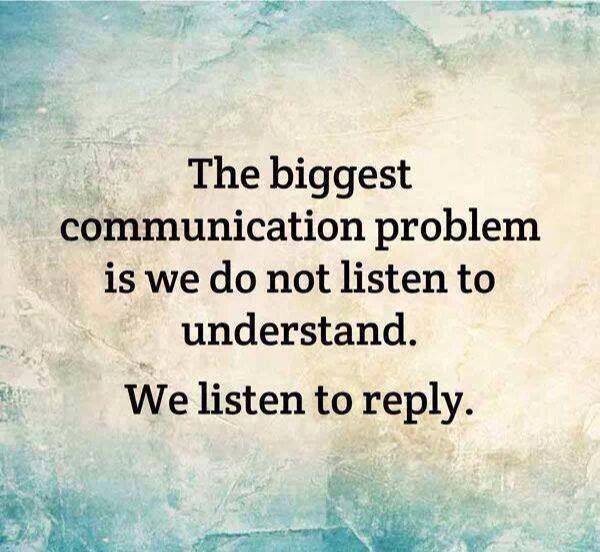I love it when members write in via Ask Me Anything and allow me to share my responses with everyone. Here is a great question from “Cathy” – I anonymize their name to protect their privacy. I am glad she is proactive in asking this question of how to build relationships and trust with a new team as she is about to start a new job.
Cathy’s Questions and Context
What would you like to ask me?
Any tips on how to quickly build relationships/trust with a new team?
Please tell me some background information around your question?
I will be switching jobs soon – into a product manager role – and it will be a big growth opportunity for me. I really want to be able to get the lay of the land and understand how the team works (and how I fit into it) as quickly as possible.
I’m having strong “imposter syndrome” feelings and really want to do well. I worry about letting people down.
What do you think you should do? What options have you considered?
Setting up 1-1 meet and greets
Your level of work experience
10-14 years
Cathy Has Two Questions Here
Cathy, it’s great that you are being proactive in getting help. You are already putting your best foot forward. I think you may actually be asking me two questions here.
- How to better manage your “imposter syndrome” in this new job?
- How to build relationships and trusts with a new team
I want to address both as sometimes our own “imposter syndrome” can impact our confidence and ability to go all out when we build new relationships. We tend to spend part of emotional and mental energy judging ourselves harshly when we feel like an imposter. It’s important to realize that if you got the job, then you deserve to be there. You didn’t fool them nor did they make a mistake.
High Level Answers
Many overachievers experience “imposter syndrome.” You are not alone. I still have it at times after 25 years in two successful careers. Believe or not, when I feel like an imposter, I listen to my own coaching call – 30 min on How to Deal with Imposter Syndrome on this topic to realize its impact and how to better navigate it. Listen to it and let me know any follow up questions
 Setting up 1 on 1 meet and greet is a great start to building relationships and trust with your new team. What’s also important is with whomyou decide to do 1 on 1 meetings, how you facilitate the meeting, and what you do after your first meet and greet. Here are 5 tips to consider
Setting up 1 on 1 meet and greet is a great start to building relationships and trust with your new team. What’s also important is with whomyou decide to do 1 on 1 meetings, how you facilitate the meeting, and what you do after your first meet and greet. Here are 5 tips to consider
Tip 1: Know how to introduce yourself in your 1 on 1.
The 1 on 1 is a great way to make a good first impression. Be prepared to share something both personal and professional about you. Relationships are built between human beings. If you have common outside interests, sometimes that can really accelerate your ability to trust each other at work. If you start with something personal about yourself, then likely the other person will reciprocate.
Another way to introduce yourself is create a slide – left side can be about your role and your professional experiences and the right side can be all about your personal interests and hobbies with photos. Our team actually did this as a group to introduce ourselves to each other after a merger. I then started using the slide for my meet and greet with new partners. I leave this up to you as sometime informal banter is a little less stiff than walking someone through a slide. Whatever method you use, the objective is to try to get to know them personally as well as professionally.
Professionally, be prepared to not just describe your role on the team but also add some color on why you are passionate about it. This usually leaves a stronger impression with people than just the job description of your role.
Tip 2: Listen, Listen, Listen to Understand
Once you have introduced yourself, focus the rest of the meeting on listening. The first 30 to 90 days is more about asking questions and listening to understand. You want to make sure you know all the context of your job before jumping in too soon to show off your skills. People like to be heard. The more you absorb what is going on around you from many angles, the more people is likely to open up to you with some “unspoken” truth about the company, your department etc…
listening. The first 30 to 90 days is more about asking questions and listening to understand. You want to make sure you know all the context of your job before jumping in too soon to show off your skills. People like to be heard. The more you absorb what is going on around you from many angles, the more people is likely to open up to you with some “unspoken” truth about the company, your department etc…
Trust is built by listening first and by asking good questions. I recommend reading this article on First 90 Days – Focus on these 4Cs to Onboard quickly to help you think of the type of questions you may want to ask during your 1 on 1s.
Tip 3: Ask for preferred working style and pet peeves
Everyone has different working styles, especially in this increasingly virtual work environment. Find out their preference around email, IM, or calls to better understand how to work with them well. People appreciate the direct question and the care you are taking to make sure you know how to best work with them.
Another great question I like to ask is their biggest pet peeves. Everyone has them. Some people may say that they don’t have any. However, I don’t usually take that for an answer. I explain that everyone has some. It’s not a bad thing to have them. For example, some people’s biggest pet peeve may be being cut off during discussion or others being late to meetings as they are always on time.
Just by asking these questions, people will appreciate that you care to work with them well and that can help you build relationship before you actually do any work together. 10% of the people I ask both of these questions to also ask me in return. In this case, be prepared to share your own honest answers. 🙂
Tip 4: Go broad with your 1 on 1 meet and greets
In addition to doing 1 on 1 with the people you manager recommends, go broader and plan to do 1 on 1 meet and greets with as many people as you can in the first 90 days. You will be surprised what you can learn about the company, the culture, the non-spoken context. Not everyone will be very direct with you in sharing. However the more you meet, the faster you can get the real picture of what’s going on.
FYI – I met over 100 people 1 on 1 in my first 100 days and about 250 people now that I have been in my new job for 18 months. This is NOT a benchmark for you as I am in a more senior position. However, I think you should plan to meet at least a few dozen in your first 90 days as a product manager.
A product manager need to partner with many groups to be successful. Being proactive and interested in meeting those around you will also help build your reputation. When you are new, you usually don’t need to be introduced to set up 1 on 1s. You can just say you are new and would love to get to know them and their roles.
Be proactive to meet both your peers, key partners and those senior to you. For those senior to you, you want to run the idea by your manager so he or she is not surprised or have any concerns. If they are supportive, then go ahead and set up 1 on 1s with peers of your manager. You can read more about how to network with senior executive here.
Tip 5: Set up regular connects
Trust is built over time. No one will trust you after 1 meeting. It’s impossible. Once you had a chance to meet key partners and peers, propose to do regular 1 on 1s with them. It’s important to let them choose the frequency as you may not know yet how often you should meet them. Frequency can be weekly, biweekly, monthly, or even quarterly depending on their role vs yours. If both of you are not sure, just suggest a frequency and say we can always cancel or change it over time.
Once decided, then be the person who will set it up. If possible, before every meeting, edit the invite to include a short agenda. Everyone appreciate that you think about how to best use their time. My regular 1 on 1 don’t always have urgent work topics. It’s a chance to ask how they are doing, what keeps them up at night, how can you help etc…
At the end of the day…
You have the right intent already for your new job. You intend to do a good job as well as be proactive in building relationships. These tips are all focuses around the 1 on 1 meet and greet your suggested. These are also other ways to build trust to consider. Teamwork wrote this great article on 10 ways to strengthen team relationships.
Also remember give yourself time to shine. It take 6-9 months before you get comfortable with a new job and even know what you are doing. Don’t be too harsh on yourself. Just try your best! Best wishes
Your comments: Do these tips help? Do you have additional questions? I look forward to your comments
Like this article: Then help me share it on social media
New to my site: Then start here – Soft Skills – How to Succeed like an Executive
I am always in your corner. Work smart and live more
Lei